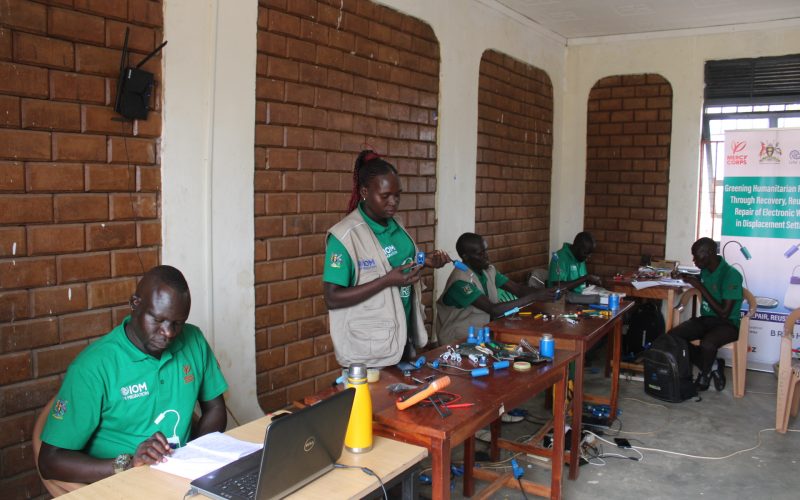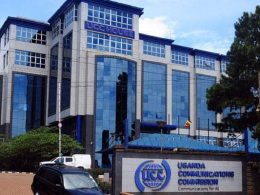By Mark Kawalya
Solar lanterns are the main source of lighting in Bidibidi, a settlement in northwestern Uganda that hosts most of the 270,000 refugees. Having no access to electricity is the main precursor for the heavy reliance on solar lamps. Another issue faced by the refugees is the poor quality of the lamps sold to them, which break down easily, necessitating replacement after a few months.
Confisase Wani Hadi lives in the camp with his family and tries to elucidate their predicament.
“I took my lamp to our local shop, but they could not repair it, so I decided to just keep it. We have no access to electricity here; we depend on solar lamps, but most of these sold here do not last long. So, we must keep buying new ones, which is costly for us,” says the 46-year-old resident of Bidibidi Refugee Settlement’s Zone 2.
Recently, Wani benefited from a free solar lamp repair program under the International Organization for Migration (IOM) project “Greening Humanitarian Responses Through Recovery, Repair, and Recycling of Solar Products in Displacement Settings”.
Disposal of solar products is a challenge because it can be hazardous to the environment and pose health risks if not done properly. They impact soil quality, which leads to low crop yields and forest regeneration. Solar lamps use metals that are hazardous, such as cadmium, chromium, and lead.
The UN’s 2020 Global E-Waste Monitor indicates that globally, more than 53.6 million metric tons of electronic waste were generated in 2019. Only 17.4 percent of this was recycled and collected. The report shows that e-waste is on track to become the world’s fastest growing domestic waste stream. This is caused by short electronic equipment life cycles, few repair options, and high consumption rates.
To minimize the risks of e-waste in Bidibidi, IOM is repurposing and repairing out-of-use lanterns and other electronics while supporting livelihoods through job creation. The initiative is also creating awareness about the dangers of poor electronic waste disposal for both human health and the environment.
Lamps that have been collected from the camp find their way to the repair center, where technicians repair them. Useful parts are taken from old lamps and reused in other lamps, while others get new battery packs.
“We didn’t know where to take them solar lanterns for repair, and we didn’t know the risk related to poor use of electronic products on health and the environment,” says Wani.
Currently, the initiative has repaired 3,412 lanterns out of its target of 5,000.








